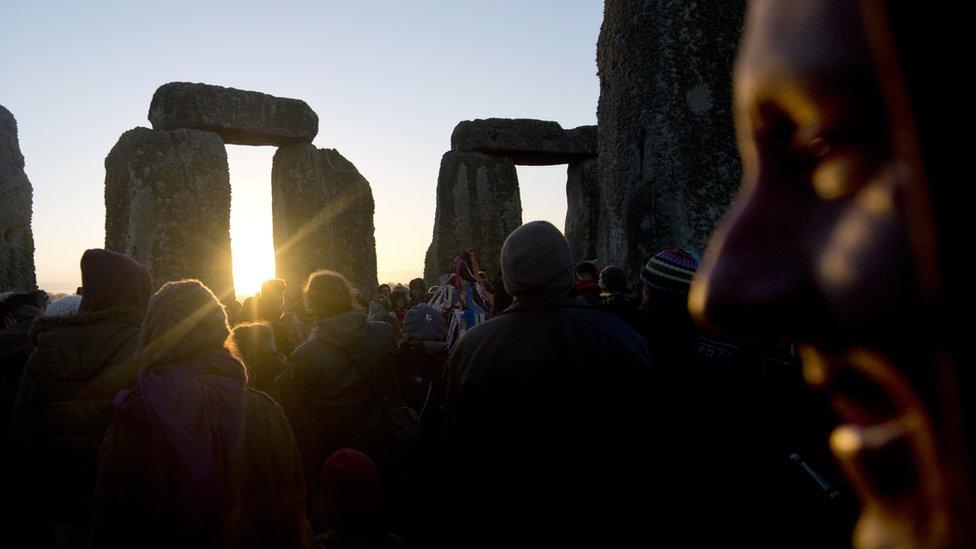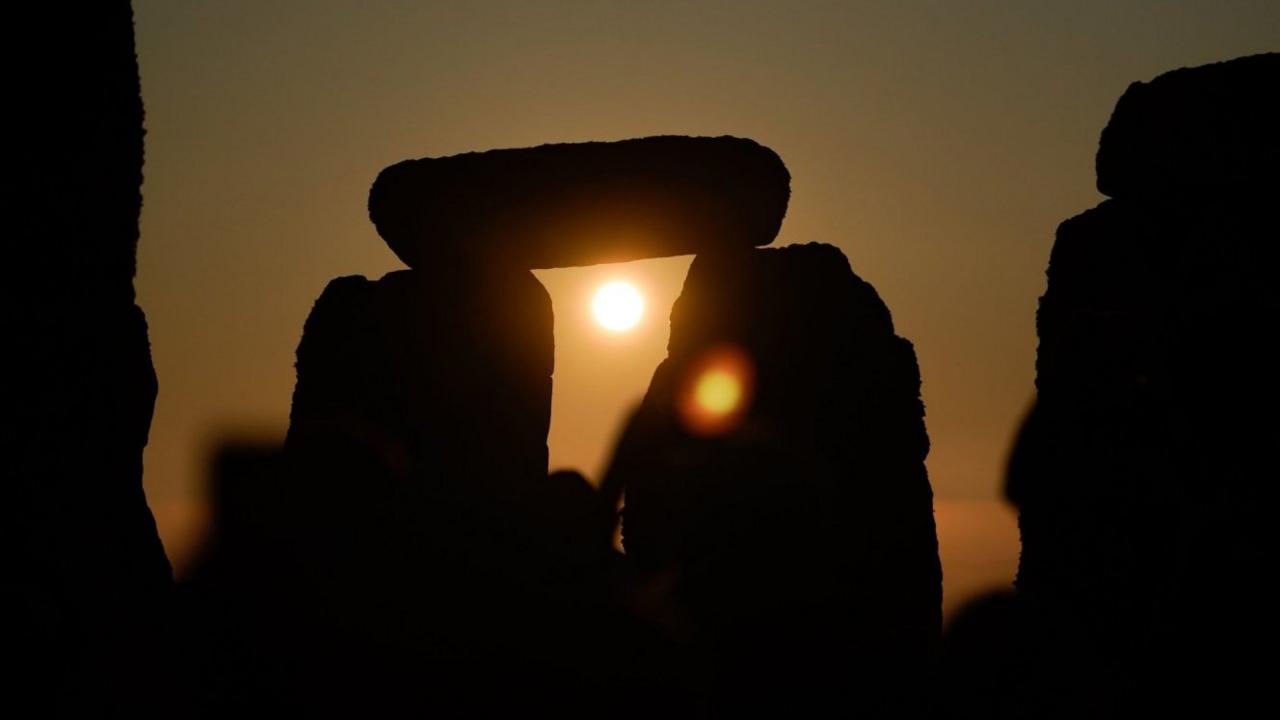Summer solstice revellers urged not to go to Stonehenge
- Published
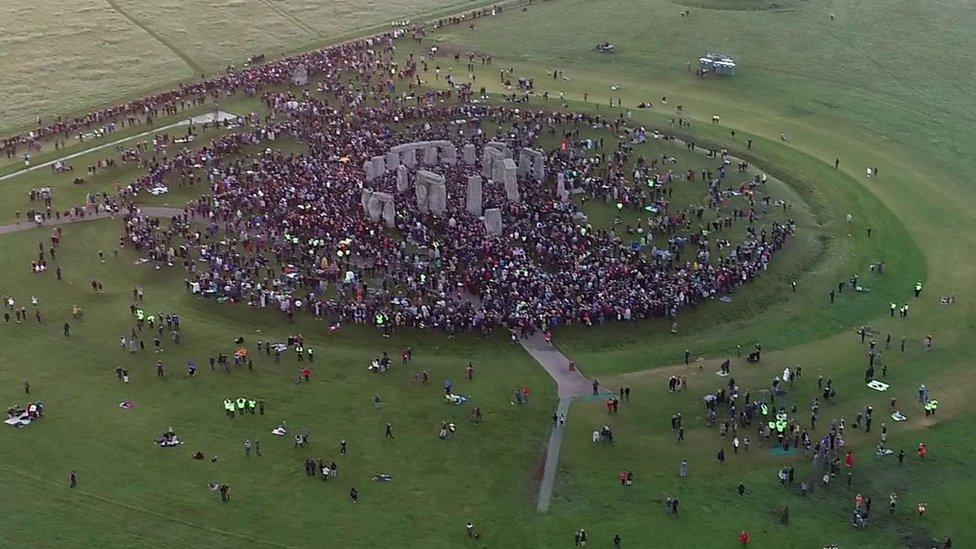
English Heritage has provided access to the summer solstice celebrations at Stonehenge since 2000
Revellers are being urged not to head to Stonehenge for the summer solstice.
English Heritage has cancelled this year's celebrations due to a ban on mass gatherings but is streaming the sunrise live on social media instead.
Senior druid King Arthur Pendragon said it was "not very pagan" to watch a "false sunrise" on a screen.
Wiltshire Police said officers would have a "presence in the areas of both Stonehenge and Avebury" and local authorities warned people to stay away.
Traditionally about 10,000 people gather at the Neolithic monument in Wiltshire, on or around 21 June, to watch the sun rise on the longest day of the year.
This year, Stonehenge has been closed to visitors since mid-March and people wanting to celebrate the sunrise at 04:52 BST on 21 June are being urged to stay away.
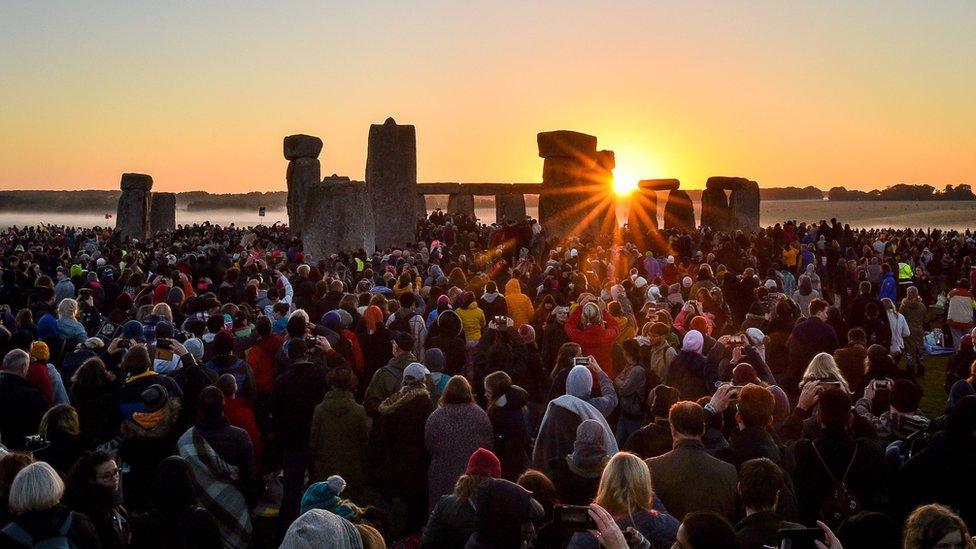
On the summer solstice, the sun rises behind the Heel Stone, the ancient entrance to the Stone Circle, and rays of sunlight are channelled into the centre of the monument
"We know how strong the draw to come is for some people," said Stonehenge director Nichola Tasker.
"But please do not travel to Stonehenge this summer solstice, watch it online instead."
The National Trust has also closed Avebury and asked visitors "not to travel to the area".
Stephen Stacey, from Avebury Parish Council, said it was "not able to accommodate large numbers of visitors" this year.
Councillor Philip Whitehead, from Wiltshire Council, said it was "important people don't attempt to travel to Avebury or Stonehenge" as they "may be putting local communities at risk".
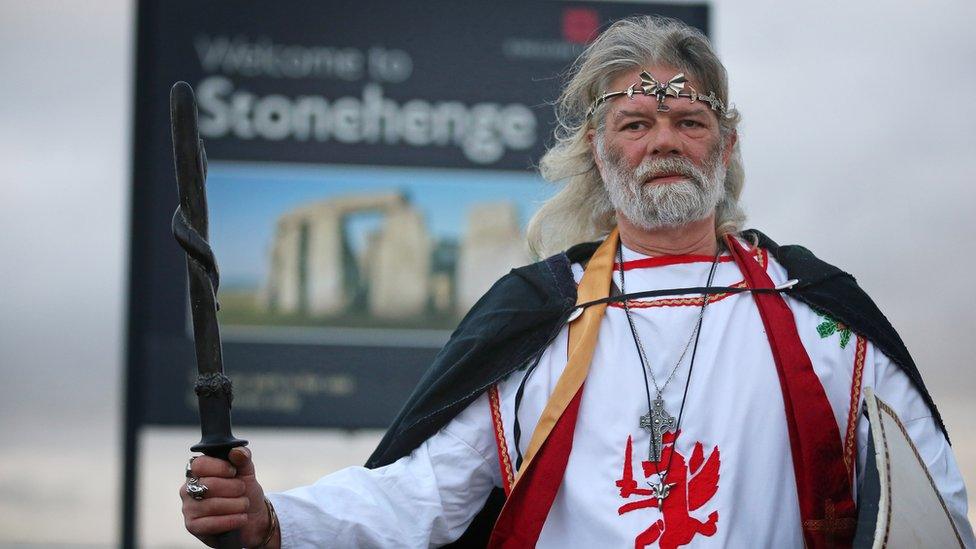
Senior Druid King Arthur Pendragon said he thought people would "turn up in or around the vicinity of Stonehenge" in spite of the police presence
But Mr Pendragon, said the the "whole" purpose was "to see the sunrise", not to see a film of it.
"It's not very pagan or druidic, to sit in front of a screen and watch what effectively is a false sunrise because all it is is a film," he said.

What is the summer solstice?
The term 'solstice' derives from the Latin word 'solstitium', meaning 'sun standing still'.
For northern hemisphere dwellers, the 2020 summer solstice occurs on 20 June at 22:43 BST.
Stonehenge is a monument that aligns to the midsummer sunrise and the midwinter sunset.
On the summer solstice, the central Altar stone at Stonehenge aligns with the Heel stone, the Slaughter stone and the rising sun to the north east.
Sunrise is celebrated at Stonehenge on 21 June as it is the nearest sunrise to the summer solstice at 22:43 BST on 20 June.
- Published12 May 2020
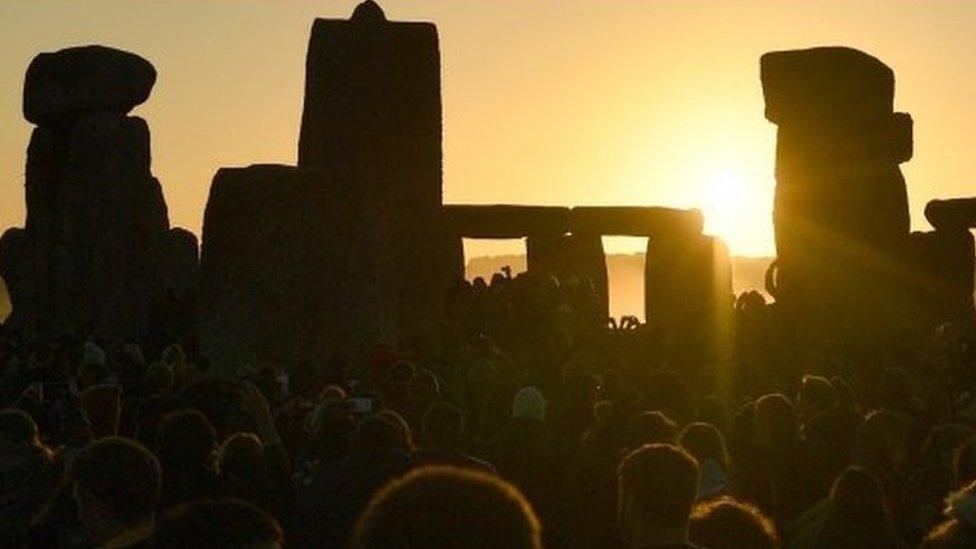
- Published21 June 2019
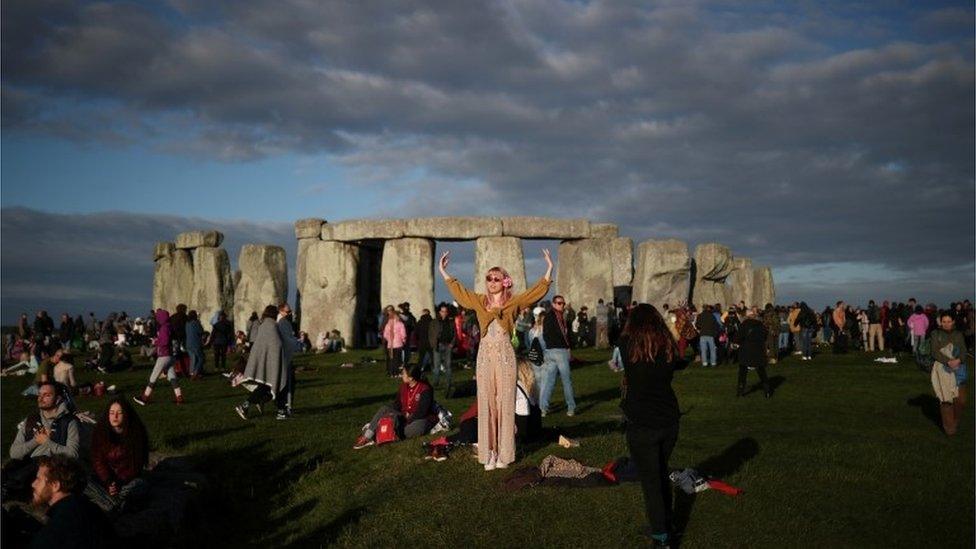
- Published21 June 2018
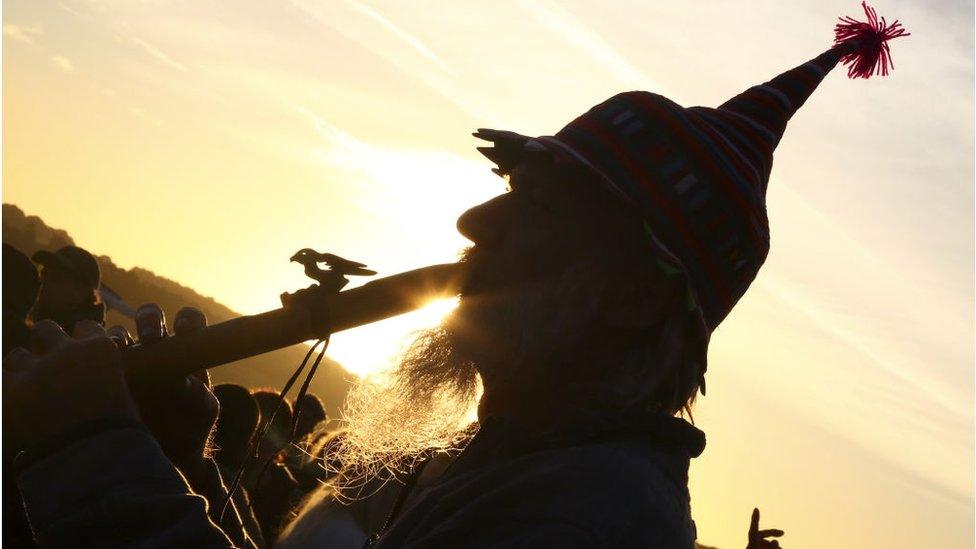
- Published29 August 2017
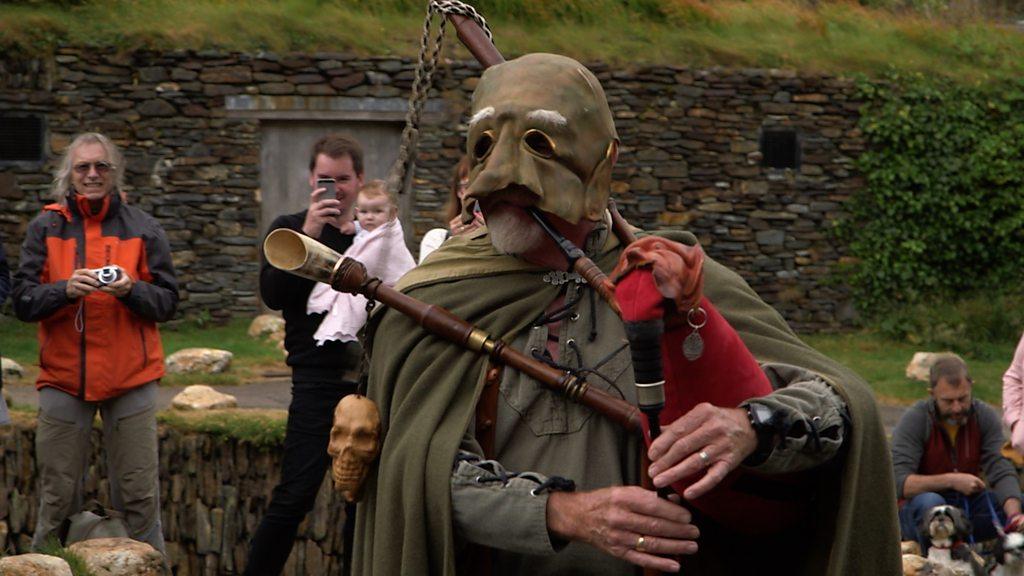
- Attribution
- Published20 June 2017
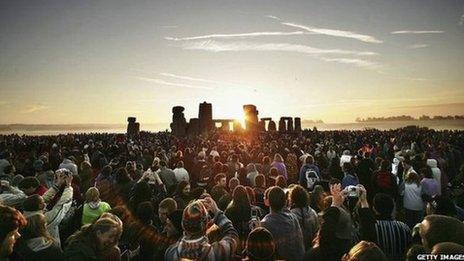
- Published21 December 2017
